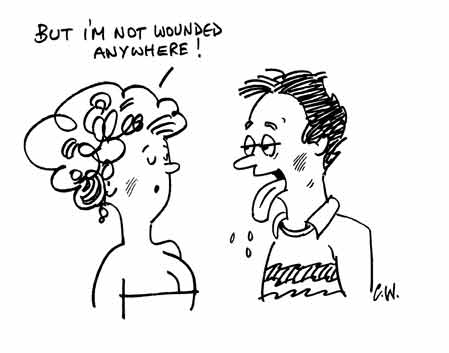|
|
Licking wounds |
(09/08)
Scientists in the Netherlands have identified a compound in human saliva, histatin, a small protein previously only believed to kill bacteria, that greatly speeds wound healing. Their research appears in the Federation of American Societies for Experimental Biology journal (https://www.fasebj.org/) and may offer hope to those suffering from chronic wounds, traumatic injuries and burns. Because the compounds can be mass produced, they could become as common as antibiotic creams. |













